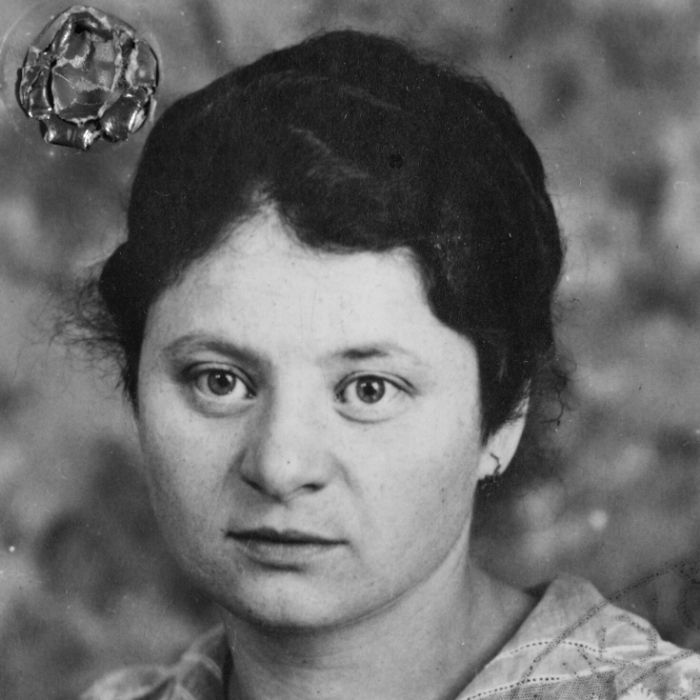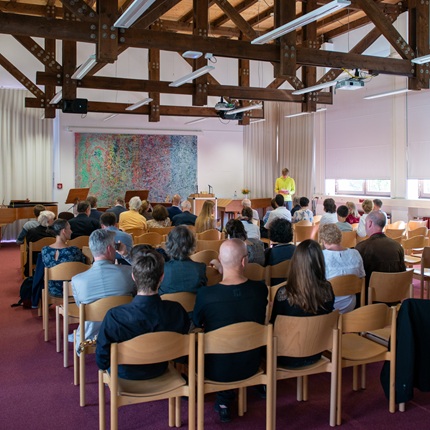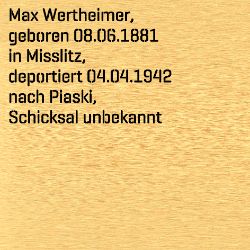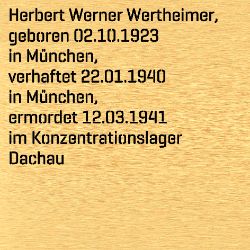Bertha Baum was born on July 20, 1885 in Liboč near Prague. She was the daughter of Julie and Moritz Baum. In May 1918, she married the Munich merchant and accountant Max Wertheimer; the couple had two sons, Kurt, born in 1920, and Herbert Werner, born in 1923. Besides her own sons, Bertha Wertheimer also raised Erich, her husband’s son from his first marriage. In the mid-1920s the family experienced financial hardship due to rampant inflation. For a time, the children were forced to live in the Jewish children’s home at Antonienstraße 7. In 1926 the Wertheimer family then moved into Nymphenburger Straße 29. The persecution of Jews that followed the establishment of Nazi rule quickly impacted on the family. Bertha Wertheimer’s stepson Erich fled to New York in 1935. A year later, Kurt Wertheimer emigrated to Prague and then later to Palestine. In April 1939, Bertha and Max Wertheimer were forcibly removed from their apartment in Nymphenburger Straße and billeted in Reichenbachstraße 27, which had originally served as the synagogue of Eastern European Jews. The Gestapo (Secret Police) had confiscated the building and now used it as a collection point to accommodate Jews. The Gestapo arrested Bertha Wertheimer’s youngest son Herbert on January 22, 1940 and shot him on March 12, 1941, aged just seventeen, in Dachau concentration camp. After the murder of their son, the ordeal of Bertha and Max Wertheimer continued. On March 24, 1942 they were sent to the “Heimanlage für Juden” (“home facility for Jews”) located at Clemens-August-Straße 9 and then later to the “Judensiedlung” (“Jewish Quarter”) Milbertshofen. On April 4, 1942 the Gestapo deported Bertha and Max Wertheimer to Piaski ghetto in German-occupied Poland. The living conditions there were appalling. Scores of people died of illness and disease or as a result of the arduous forced labor; others were transported to the extermination camps of Sobibor and Belzec and murdered there. The trace of Bertha and Max Wertheimer vanishes once they arrived in Piaski ghetto. (text P. Höllriegel, editor C. Fritsche, translation P. Bowman)







